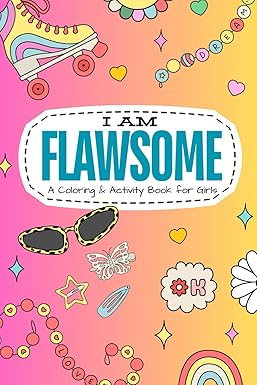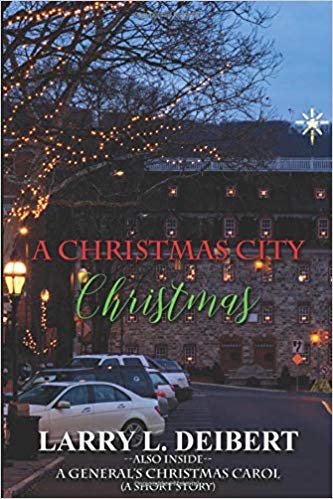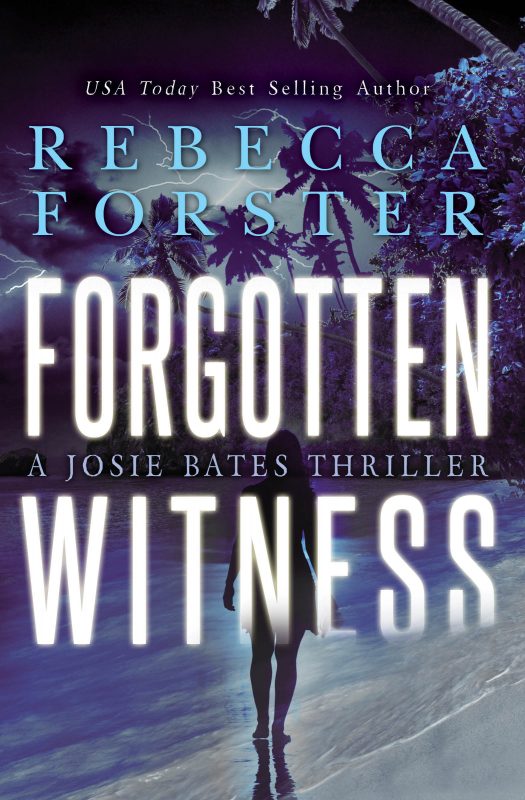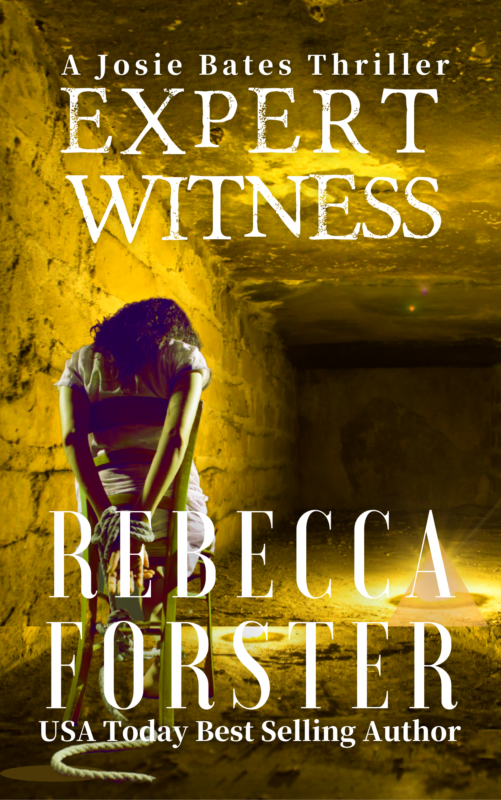Tari Lynn Jewett: August Featured Author
August 21, 2021 by Tari Jewett in category Featured Author of the Month tagged as #Charmed Writers, #FireworksintheFog, #HeromsaForTheHolidays, #PleaseSayYes, romantic comedy, Tari Lynn Jewett

Tari Lynn Jewett lives in Southern California with her husband of nearly thirty years (also known as Hunky Hubby). They have three amazing sons, a board game designer, a sound engineer and a musician, all who live nearby. For more than fifteen years she wrote freelance for magazines and newspapers, wrote television commercials, radio spots, numerous press releases, and many, MANY PTA newsletters. As much as she loved writing those things, she always wanted to write fiction…and now she is.
She also believes in happily ever afters…because she’s living hers.
Tari’s Books
Make Mine Slang by Jenny Jensen
August 19, 2021 by Jenny Jensen in category On writing . . . by Jenny Jensen tagged as characterization, language, Planning, research, Slang, Writer's Toolbox
This character, Tall T Reynolds, is growing in my mind. I can see him tanned and raw and a bit dusty. I know his world is the 1940’s rural west and I know he’s going to briefly meet Lottie, a beautiful girl in a gleaming open topped coupe. Their brief exchange will never leave his mind. Soon after, Tall T will go off to war in Europe. He and Lottie will meet again in a most unexpected way.
I want these two MCs to be drawn as very different in all ways but the heart. I want to show those differences subtly and naturally. I want to tell the story mostly in dialog, no long narratives, no narrative tells. I know that means voice and tone will have to be pitch perfect so it’s language that shows their differences, that makes each wholly human and credible. I thought about using dialect but rejected the idea. I don’t trust my skills to pull that off successfully. Besides, they are both smart and fairly well educated. This is not a rustic pauper gets the princess story. Still, they are from very different worlds – until they’re not.
After rummaging about a bit in the writer’s toolbox, I’m thinking slang as a way to initially set them apart and ultimately bring them together. Slang is an interesting critter. It’s a very flexible tool. It’s hard to pin down what is slang and what isn’t. Slang changes so fast. Yesterday’s ‘far out’ is today’s ‘snatched’, but it’s pretty clear what slang does for us. The casual use of slang terms show we’re in the know, we belong to that group who understands what it is to ‘I oop’. More to my purposes, slang is a shared affinity of age and disposition and attitude.
Slang can be subversive, playful, derisive, affectionate, even endearing – all such very human qualities – and human is what I want to show in circumstances that aren’t all that humane. Ever changing, almost updating itself to fit shifting circumstances slang morphs from common terms to become familiar to a community who is living and sharing shifting circumstances. How else explain today’s use of ‘ghost’? Slang can turn meaning topsy turvy, assigning an opposite meaning to words – an effective response to a world that feels turned upside down. To say you ‘destroyed’ something today certainly doesn’t mean to me what it means to a teen.
Because slang is a hallmark of a shared, exclusive world it’s the perfect devise to reinforce the journey of Tall T and Lottie through the chaos of a world war to a shared reality. They will be tested in ways they’ve never imagined in a world where familiar conventions don’t always apply and time can be frightfully short. At their first meeting, Lottie’s language will baffle Tall T; he will know from that brief exchange that they are from very different worlds. By the end, they will share an unspoken understanding of how fubar life can be. They’ll both know the world is cockeyed and with one exchange of peepers they’ll know where to meet because they have all the dope on the good places. They are people with plenty of moxie who become each other’s killer diller.
I will be careful though. I don’t want them to sound like they’re trying too hard to be cool, or are too stupid to express themselves in any other way. I want to salt the slang effectively, add just that kick of heat a touch of chili adds to a good stew. Like seasoning, I’m going to need a deft hand. I can imagine how clumsy a slang word could feel, or how tiresome the overuse could become. There’s a lot of revision ahead for me if I’m going to Keep it 100. Forewarned is forearmed. I’ll stop beating my gums now and immerse myself in the slang of The Greatest Generation. Roger. Wilco.
Using Small Conflicts To Move a Story Along
August 18, 2021 by marianne h donley in category Ages 2 Perfection Online Class, Online Classes tagged as Aged to Perfection Online Class, Mary Marvella, pantsers, plotters, Sagging Middles
Presented by: Mary Marvella
Date: September 1 – 30, 2021
Pricing: A2P Member fee: $15
Non-A2P Member fee: $30
About the Workshop:
“Using Small Conflicts To Move a Story Along” will involve ways to cure sagging middles in any story.
Writers who don’t plot can find themselves painted into a corner or wondering what to do next. Even plotters sometimes find a story seems to be going nowhere. Sometimes the problems are solved, but the book needs to be longer. OOPS!
So what can we do about that? Students and I will share ways to make scenes more meaningful and give characters problems that fit the situation and make those characters stronger for the new problems.
I will give lessons/lectures about why stories need conflicts, small and large, internal and external, to keep excitement going and readers reading.
Students will select slow scenes from their projects or create them so we can pump life into them with small or large rocks. I will give examples of problems based on the stories. We will brainstorm and share scenes on the loop each week.
About the Presenter:
Mary Marvella has been a storyteller for as long as she can remember. The arrival of the book mobile was as exciting as hearing the music of the ice cream truck. As a child of the South, she inherited the storytelling gene from her parents and her grandmamas.
Retired from teaching classic works of the masters, Mary plays let’s pretend with her characters. She has published 10 novels, 1 book on editing, and a collection of Christmas stories.
Mary tutors, and coaches writers when she isn’t working on projects as a freelance editor. She has always been a grammar geek who loved soaking up new knowledge and reading everything, including labels on cereal boxes.
Yankee Thunder: The Legendary Life of Davy Crockett
August 17, 2021 by marianne h donley in category Apples & Oranges by Marianne H. Donley tagged as Davy Crockett, Legends, lessons
Today is Davy Crockett’s birthday.
Almost everyone over a certain age will now start singing the Disney Theme song and imagining Fess Parker in a coonskin cap, but not me. Oh, I pass the age test, but I have a book that belonged to my mother, titled YANKEE THUNDER: The Legendary Life of Davy Crockett. That depiction of Davy Crockett wins out over the TV show for me, but not without a bit of sadness.

Written by Irwin Shapiro with pictures by James Daugherty, it was a fixture of my childhood. In the book Davy is born man-sized, weighing in at two hundred pounds and fourteen ounces. To feed him, his parents plant him in the ground and water him with wild buffalo’s milk mixed with boiled corn cobs and tobacco leaves.
He grows so big that by chapter four his family must whittle him down to man-size. Out on adventures, Davy finds two unusual pets, a bear named Death Hug, and a buffalo called Mississip.
As much fun as all this is, unfortunately, I would never recommend the book today, especially not for children. While the book shows Davy Crockett as sympathetic towards native people, native people themselves are characterized in the most bigoted and stereotypical way.
I hope we have learned in the 78 years since Yankee Thunder was published not to use negative and hurtful stereotypes in our writing. I’d like to think our stories can be recommended without reservation.

Whittling down to man-size 
Be sure you’re right, then go ahead. 
Title page
Trapped in Sin Book Blitz and Giveaway
August 16, 2021 by marianne h donley in category Apples & Oranges by Marianne H. Donley, Rabt Book Tours tagged as #LyndellWilliams, #RABTBookTours, #RomanticSuspense, #TrappedinSin, @RABTBookTours
Romantic Suspense
Date Published: August 7, 2021
Whoever tore him from her is dead!
Baaz Hamdi might be a criminal, but nothing means more to him than his wife Rahmah. So when someone sets him up, and he lands in jail, his top priority is getting out and having her back in his arms. But he can’t tell anyone where he is – not even his beloved. Both their families already think he’s a thug. He can’t afford to confirm their suspicions, and there are too many people on the inside who would use his family against him.
Alone, with no money and an inconsolable baby, Rahmah agonizes over Baaz’s disappearance. All seems lost, until she meets a handsome stranger, who helps her get her life in order and convinces her to think about divorce. Without a clue if Baaz is dead, alive, or ever coming back, she decides to end her marriage and move on with her life.
Then Baaz returns . . .
Excerpt
Baaz slammed the door before Saeed could finish his sentence and stormed through the house. Saeed was hanging around Rahmah? Some strange stuff went on while he was away. He had to find out what.
He stood in the entryway between the dining room and kitchen, clenching his teeth and waiting for the fury inside his freezing body to calm. It didn’t. “You know Saeed Mendez?”
Rahmah held a scoop of coffee grounds over the maker and met his gaze. “Oh, was that Saeed?” She smiled and dropped them into the machine.
Every nerve fired through him. He got into her face. “Yes, and I asked you how the fuck you know him?”
Rahmah backed up, her eyes wide. “I—I work for him.”
He grabbed her arm. “You work for him?! Doing what?” He squeezed.
She squirmed. “Why are you so upset?”
He tightened his grip. Flashes of Rahmah dancing half-naked with a bunch of men salivating below flashed through his mind and fueled his fury. Her head jerked as he shook her. “Tell me,” he seethed through clenched teeth. “If he has you on a pole or beating some loser in a fetish den, I’ll break his neck.”
About the Author
Lyndell Williams is an award-winning writer and bestselling author. She is a cultural critic with a background in literary criticism specializing in romance. She is an editor, writing coach and mentor. She has been published in peer-reviewed journals and writes for multiple online publications.
Contact Links
Purchase Link
Affiliate Links
A Slice of Orange is an affiliate with some of the booksellers listed on this website, including Barnes & Nobel, Books A Million, iBooks, Kobo, and Smashwords. This means A Slice of Orange may earn a small advertising fee from sales made through the links used on this website. There are reminders of these affiliate links on the pages for individual books.
Search A Slice of Orange
Find a Column
Archives
Featured Books
A CHRISTMAS CITY CHRISTMAS
Will they have a normal Christmas? Probably not.
More info →A VERY MERRY SUPERHERO WEDDING
Wedding Dreams . . . and Christmas Fiends
More info →FORGOTTEN WITNESS
A madman's ramblings, a government's secrets and a personal pain send Josie Bates into hell on earth.
More info →EXPERT WITNESS
Josie Bates disappears without a trace and the investigation finds more than one person who wants her dead.
More info →Newsletter
Contributing Authors
Search A Slice of Orange
Find a Column
Archives
Authors in the Bookstore
- A. E. Decker
- A. J. Scudiere
- A.J. Sidransky
- A.M. Roark
- Abby Collette
- Alanna Lucus
- Albert Marrin
- Alice Duncan
- Alina K. Field
- Alison Green Myers
- Andi Lawrencovna
- Andrew C Raiford
- Angela Pryce
- Aviva Vaughn
- Barbara Ankrum
- Bethlehem Writers Group, LLC
- Carol L. Wright
- Celeste Barclay
- Christina Alexandra
- Christopher D. Ochs
- Claire Davon
- Claire Naden
- Courtnee Turner Hoyle
- Courtney Annicchiarico
- D. Lieber
- Daniel V. Meier Jr.
- Debra Dixon
- Debra H. Goldstein
- Debra Holland
- Dee Ann Palmer
- Denise M. Colby
- Diane Benefiel
- Diane Sismour
- Dianna Sinovic
- DT Krippene
- E.B. Dawson
- Emilie Dallaire
- Emily Brightwell
- Emily PW Murphy
- Fae Rowen
- Faith L. Justice
- Frances Amati
- Geralyn Corcillo
- Glynnis Campbell
- Greg Jolley
- H. O. Charles
- Jaclyn Roché
- Jacqueline Diamond
- Janet Lynn and Will Zeilinger
- Jaya Mehta
- Jeannine Atkins
- Jeff Baird
- Jenna Barwin
- Jenne Kern
- Jennifer D. Bokal
- Jennifer Lyon
- Jerome W. McFadden
- Jill Piscitello
- Jina Bacarr
- Jo A. Hiestand
- Jodi Bogert
- Jolina Petersheim
- Jonathan Maberry
- Joy Allyson
- Judy Duarte
- Justin Murphy
- Justine Davis
- Kat Martin
- Kidd Wadsworth
- Kitty Bucholtz
- Kristy Tate
- Larry Deibert
- Larry Hamilton
- Laura Drake
- Laurie Stevens
- Leslie Knowles
- Li-Ying Lundquist
- Linda Carroll-Bradd
- Linda Lappin
- Linda McLaughlin
- Linda O. Johnston
- Lisa Preston
- Lolo Paige
- Loran Holt
- Lynette M. Burrows
- Lyssa Kay Adams
- Madeline Ash
- Margarita Engle
- Marguerite Quantaine
- Marianne H. Donley
- Mary Castillo
- Maureen Klovers
- Megan Haskell
- Melanie Waterbury
- Melisa Rivero
- Melissa Chambers
- Melodie Winawer
- Meriam Wilhelm
- Mikel J. Wilson
- Mindy Neff
- Monica McCabe
- Nancy Brashear
- Neetu Malik
- Nikki Prince
- Once Upon Anthologies
- Paula Gail Benson
- Penny Reid
- Peter J Barbour
- Priscilla Oliveras
- R. H. Kohno
- Rachel Hailey
- Ralph Hieb
- Ramcy Diek
- Ransom Stephens
- Rebecca Forster
- Renae Wrich
- Roxy Matthews
- Ryder Hunte Clancy
- Sally Paradysz
- Sheila Colón-Bagley
- Simone de Muñoz
- Sophie Barnes
- Susan Kaye Quinn
- Susan Lynn Meyer
- Susan Squires
- T. D. Fox
- Tara C. Allred
- Tara Lain
- Tari Lynn Jewett
- Terri Osburn
- Tracy Reed
- Vera Jane Cook
- Vicki Crum
- Writing Something Romantic
Affiliate Links
A Slice of Orange is an affiliate with some of the booksellers listed on this website, including Barnes & Nobel, Books A Million, iBooks, Kobo, and Smashwords. This means A Slice of Orange may earn a small advertising fee from sales made through the links used on this website. There are reminders of these affiliate links on the pages for individual books.























































